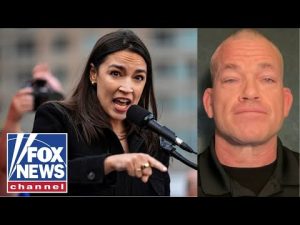**No Kings, But What Do You Want? An Examination of the Current Political Discontent**
In the current political climate, the phrase “no kings” has been thrown around by many on the left. They seem to insist that with Donald Trump in office, we have a king in the White House. But this raises an important question: what do they seek instead? The desire to abolish kings evokes thoughts of freedom, but absent of clear alternatives, it feels more like a protest against authority rather than a vision for the future. This article dives into the complexities surrounding this issue, spiced with a touch of humor and a significant nod to history.
The history of political expression in America offers quite the contrast. The iconic symbolism of a skull with crossbones and a floating crown is reminiscent of the colonial era, where patriots voiced their desire for freedom from tyranny. During that time, protestors made it clear that their only true king was Christ, rejecting the notion of earthly rulers as endowed with divine power. The founders wanted self-governance, not a monarchy. Fast forward to today, and it seems the chorus for a kingless democracy has taken a turn toward chaos—leading to a deeper investigation of what “no kings” truly means.
Most people can recognize that democracy isn’t inherently idyllic; it can easily lead to the rise of dictators and authoritarian figures. This is something our nation’s founders were acutely aware of as they crafted the Declaration of Independence and the Constitution, documents that reflect a serious study of history and governance. The Founding Fathers were not just throwing ideas against the wall to see what sticks; they were cultivating a blueprint based on caution, wisdom, and foresight. Such careful construction should prompt today’s leaders and citizens alike to ponder what the current political movements are really proposing.
Take, for example, the Boston Tea Party, which many might think bears a resemblance to today’s riots. However, this historic act of rebellion was deliberate and non-violent, driven by local citizens with a focused grievance. They sought to make their voices heard over oppressive taxation—not to burn down their own neighborhoods and wreak havoc for chaos’ sake. In stark contrast, today’s “protestors,” like those associated with Antifa, often seem more interested in destruction than dialogue. The difference is striking: one side aimed to build a nation while the other appears hell-bent on dismantling what’s already here.
So, now the pressing question arises: what are activists really advocating for when they proclaim “no kings”? Are they looking for a collaborative democracy that protects individual rights and liberties, or do they favor chaos and anarchy? More importantly, can they articulate a vision that goes beyond mere skepticism of leadership? While it’s easy to protest against perceived injustices, the real challenge lies in proposing a constructive alternative—one that fosters community, justice, and rule of law, without resorting to violence or destruction.
As Americans reflect on the differences between historic dissent and today’s actions, it’s crucial to remember that relationships—both with each other and our values—are paramount. If the goal is to pursue a more free and prosperous society, then the narrative needs to shift from the straightforward rejection of kingship to the nurturing of ideals, grounded in tradition and respect for one another. After all, when governance is rooted in mutual love and the pursuit of goodness, ordinary citizens become empowered—as they embrace their role in building a thriving community rather than igniting flames of division.
In summary, let’s not just be against kings. Let us articulate a vision that champions unity, understanding, and a commitment to the values that have kept America strong for nearly 250 years. With faith guiding the way, the hope is that we can rise above mere opposition and move towards a future powered by purpose and clarity in our collective goals.







